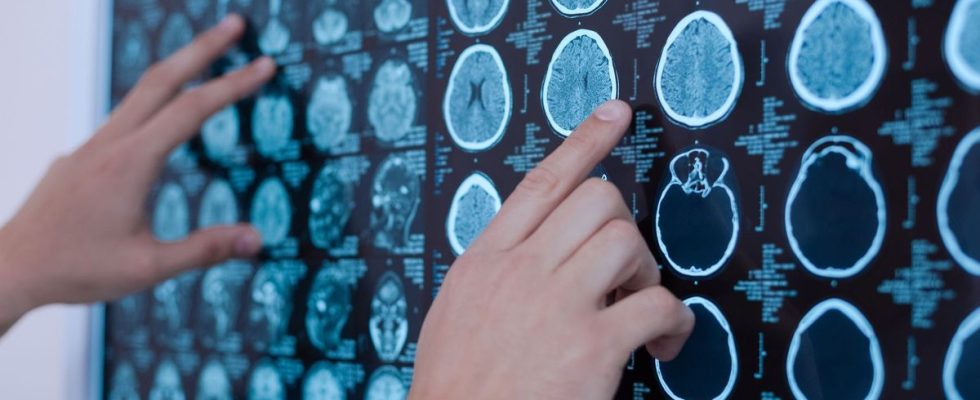Published on
Updated
Reading 2 mins.
in collaboration with
Dr Christophe de Jaeger (Longevity and geriatrics)
A team from Massachusetts General Hospital in the United States has developed an artificial intelligence model capable of detecting Alzheimer’s disease, using routinely collected brain MRI images. a breakthrough that could lead to more accurate diagnoses. The opinion of Dr de Jaeger, physiologist and member of the Doctissimo expert committee.
Doctors are increasingly working with artificial intelligence algorithms, with the aim of perfecting disease detection models. This is the case in this study, conducted by scientists from the Massachusetts Alzheimer’s Disease Research Center, in the United States.
Development of an artificial intelligence model
For this study, the researchers developed a detection model for Alzheimer’s disease based on image data obtained by brain MRI. These images were collected from patients with and without Alzheimer’s disease, who were seen at Massachusetts General Hospital, prior to 2019. The research involved a total of 11,103 images of 2,348 patients at risk of Alzheimer’s disease and 26,892 images of 8,456 patients without Alzheimer’s disease.
A model that works with all MRI images
One of the challenges faced by the research team was to allow all images, regardless of the devices with which they were acquired, to be recognized by the model developed. And that’s an important point because it comes closer”real clinical settings as opposed to perfect lab settings“said Professor Matthew Leming, researcher at the Center for Systems Biology at Massachusetts General Hospital.
A success rate of over 90%
In total, the model detected the risk of Alzheimer’s disease with an accuracy of 90.2%. The model succeeds in detecting Alzheimer’s disease independently of other variables, such as age. “Alzheimer’s disease typically occurs in older people, so deep learning models often struggle to detect the rarest early cases.explains Professor Leming.We solved this problem by making the deep learning model” blind “characteristics of the brain that he finds too closely associated with the indicated age of the patient“.
The researchers state “Our results, with cross-site, cross-temporal and cross-population generalizability, provide a strong case for the clinical use of this diagnostic technology.“.
The opinion of Christophe de Jaeger, physiologist and member of the Doctissimo expert committee
“This model developed by these scientists seems to be a tool that can improve the relevance of the diagnosis of Alzheimer’s disease, particularly from the point of view of medical imaging. In any case, artificial intelligence remains a tool, everything then depends on what we do with it. It may be used more in areas with lower medical density, for example, to meet the needs of the population. Or on the contrary, it will remain a simple diagnostic aid for doctors. In any case, we are living through a period of transition, because what was not possible ten years ago with artificial intelligence is now possible. It remains to be seen where this takes us.…”
